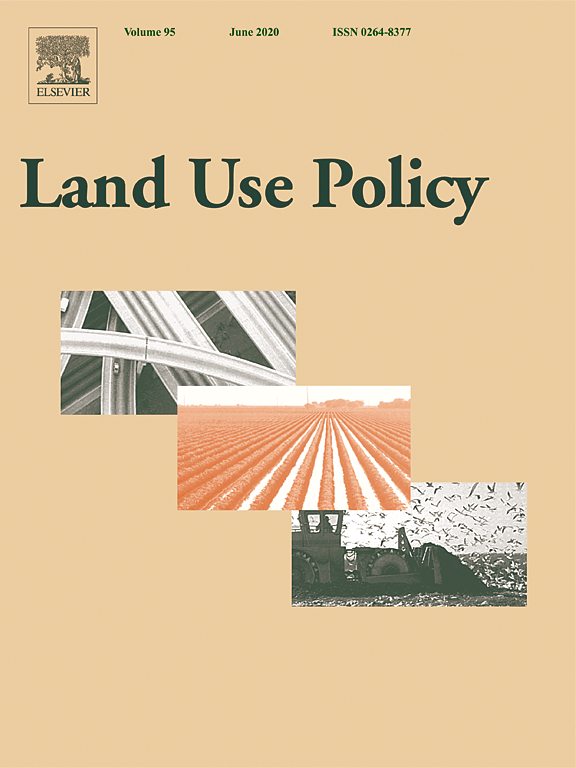Location
Land Use Policy is an international and interdisciplinary journal concerned with the social, economic, political, legal, physical and planning aspects of urban and rural land use. It provides a forum for the exchange of ideas and information from the diverse range of disciplines and interest groups which must be combined to formulate effective land use policies. The journal examines issues in geography, agriculture, forestry, irrigation, environmental conservation, housing, urban development and transport in both developed and developing countries through major refereed articles and shorter viewpoint pieces.
Land Use Policy aims to provide policy guidance to governments and planners and it is also a valuable teaching resource.
ISSN: 0264-8377
Members:
Resources
Displaying 81 - 85 of 279Subsurface planning: Towards a common understanding of the subsurface as a multifunctional resource
In response to powerful trends in technology, resource and land supply and demand, socioeconomics and geopolitics, cities are likely to increase use of the subsurface in the near future. Indeed, the subsurface and its appropriate use have been put forward as being of crucial importance if we are to achieve resilient and sustainable cities.
Reviewing First Nation land management regimes in Canada and exploring their relationship to community well-being
The presented paper synthesizes and reviews the history of Fist Nation land management, forming the background of three land management regimes types; the Indian Act land management (IALM), First Nations land management (FNLM) and frameworks of self-government land management (SGLM). The three regimes are compared to the Community Well-Being (CWB) index, being a measure of socio-economic development of communities across Canada.
Hybrid land tenure administration in Dunoon, South Africa
Hybrid land tenure administration occurs in a number of South Africa’s state-subsidised housing projects and in the informal settlements from which the housing beneficiaries tend to be drawn. Ownership is the tenure form in most of these housing projects. Under ownership the law only recognises registered land transactions. Non-government tenure administration in Dunoon was organised by street and area committees that are part of the local South African National Civics Association (SANCO) branch, a community based organisation (CBO).
Perspectives on agriculturally used drained peat soils: Comparison of the socioeconomic and ecological business environments of six European regions
In Northern, Eastern and Central European countries, peat soils drained for agriculture are a considerable source of greenhouse gas emissions. Since emissions from this source have high mitigation potential, they will likely be a focus of the European Union’s future climate goals. We describe and compare the similarities and differences in the socioeconomic and ecological business environment that policy makers, planners and farmers are confronted with when developing tailored proposals for low emission land use alternatives on peat land.
Knowledge flows: Farmers’ social relations and knowledge sharing practices in ‘Catchment Sensitive Farming’
The move towards sustainable agriculture requires a more detailed understanding of farmers’ knowledge(s) and knowledge practices. Increasingly, it is important to understand not only what farmers understand, but how their knowledge practices incorporate others – especially given the emerging call for environmentally-orientated policy measures to move beyond an individual farmer focus. This paper considers how farmers engage with, utilise and share knowledge through a focus on the Catchment Sensitive Farming (CSF) initiative in the UK.




